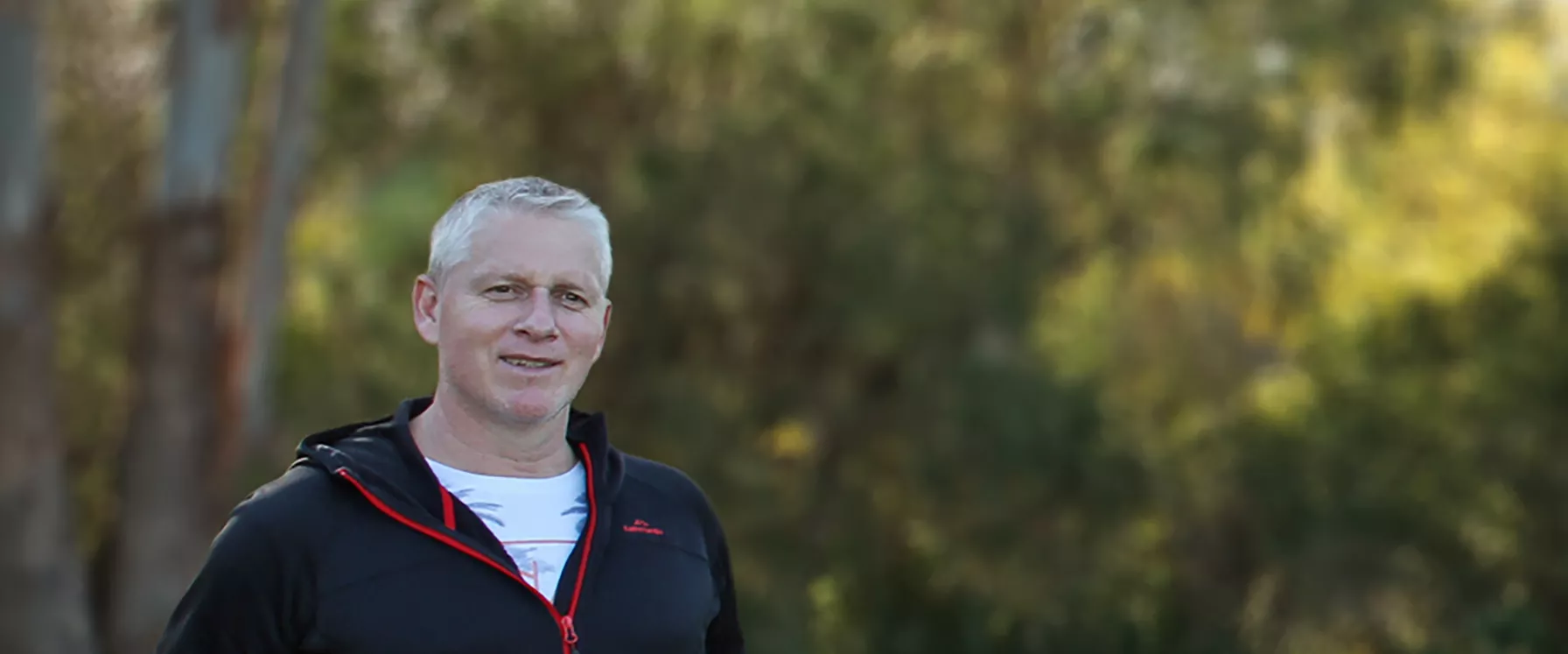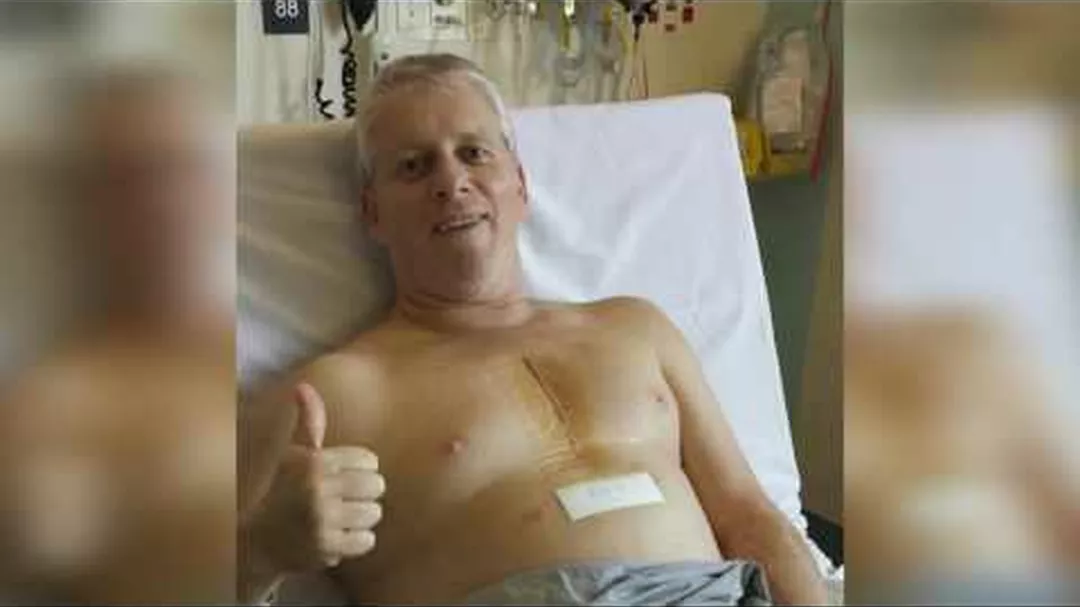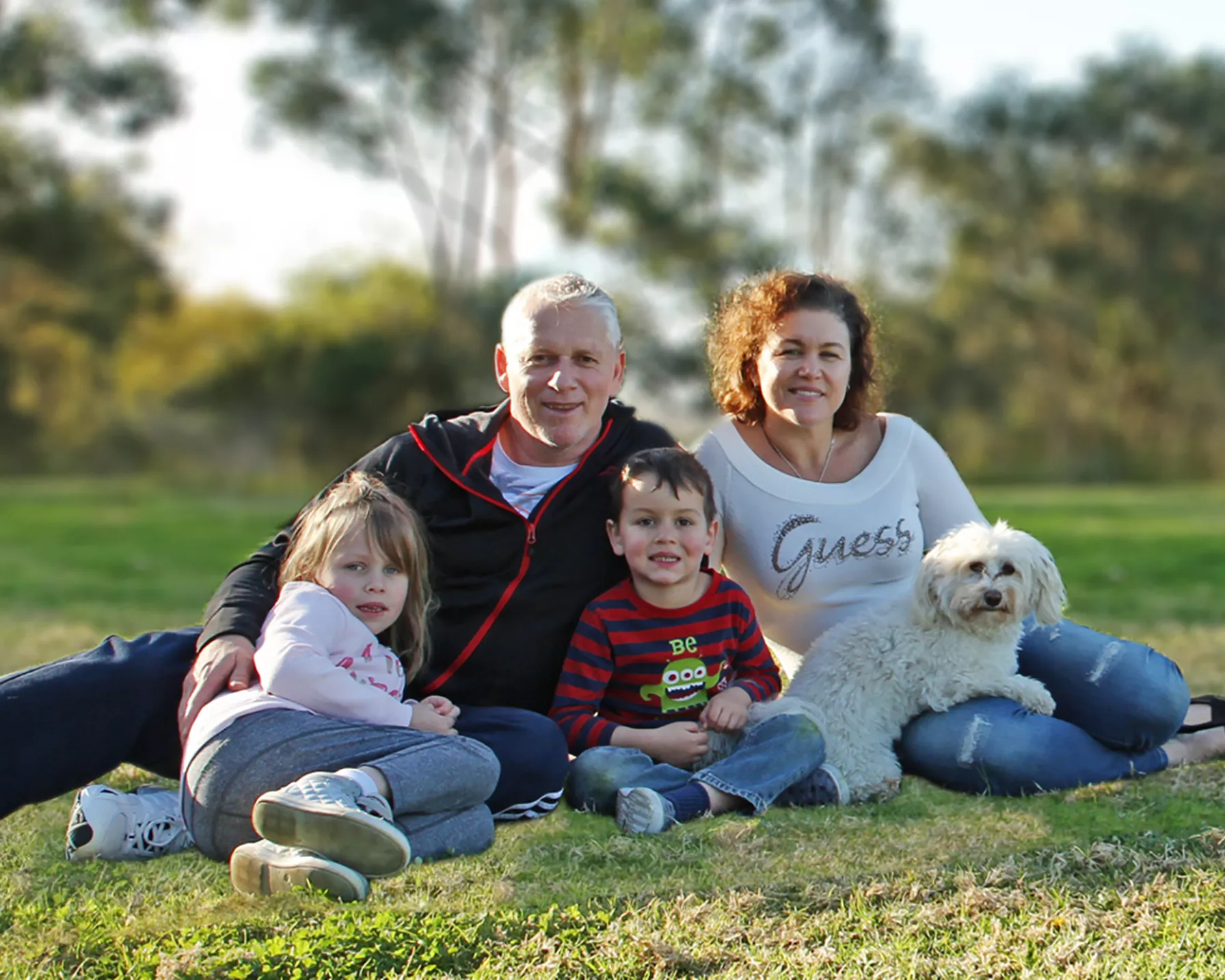Phil Dobrincic is a young and active 50-something year old. A devoted husband to Jenny and dedicated father of four, Phil has enjoyed fatherhood, its challenges and rewards, for more than 20 years.
In addition to family, Phil works in a demanding management role in the city. He also contributes to the local community, as President of the P&C association at his daughter’s school.
But in early 2016, the Dobrincic family’s world was rocked when Phil had his first coronary episode.
Late one night, Phil began to feel a sharp stabbing pains under his left armpit. The pains abated overnight but returned the next morning when Phil was driving to work. While it wasn’t classic chest pain, it was severe and as Phil remembers, “It was a pain that was not normal for me, and it was very severe, so I took myself straight to the hospital.”
Over the following 24–48 hours, Phil underwent a series of tests which confirmed that Phil was suffering a heart attack. He remained in the hospital for treatment, which included having three coronary stents inserted.
After a week in hospital, Phil was discharged and enrolled into a cardiac rehabilitation program as an outpatient. Confronted by the scare, Phil and Jenny made changes to their family’s lifestyle. The regularity of takeaway purchases decreased, diet became a priority and Phil increased the frequency of his dedicated exercise sessions.
The following year passed uneventfully, with Phil feeling well and pain free. Then gradually, Phil began to feel more frequent nausea and fatigue. He began to feel dizzy and breathless when performing normal household chores. Concerned, he made an appointment with his cardiologist.
Over the next three days, Phil’s symptoms escalated. He experienced increasing breathlessness and intermittent sharp pains in his chest which became more constant over time. After experiencing a particularly bad episode of pain at work, he decided to go straight to the hospital.
He was seen immediately, his cardiologist was notified and an angiogram was booked for the following Monday. By the time Phil had the angiogram he was experiencing constant chest pain which had spread to his jaw. Following the angiogram, Phil was informed that he was having another heart attack and he would need an urgent coronary bypass operation.
The recovery was tough. The medications while in hospital caused hallucinations and Phil was once again confronted with his mortality. Several weeks of intense pain followed.
Realising the gravity of his situation, Phil and Jenny made more radical changes to their lifestyle. They now eat a largely Mediterranean based diet, incorporating plenty of vegetables, fish, nuts and olive oil. They are careful to exercise every day and Phil has moved to a less stressful role at work, so he can focus on his health and family.
Phil also began regular counselling, “I found post-operative counselling really, really helpful. I'm in a counselling session once every fortnight at the moment.” Phil explains, “The counselling has actually helped me in dealing with my own mortality which was a struggle. Being reasonably active, reasonably in control of my life and control of work, to having major surgery and needing to recuperate over a ten-week period was a huge challenge.”
Phil has become a passionate advocate for heart research and greater awareness of heart disease, “There's an enormous amount of focus on healthy eating and exercise, but I don't think there's the direct link in the public to the consequences of not having those two things being a priority in your life.” He would like to see more emphasis on prevention, particularly in those with a strong family history of heart disease.
Phil and Jenny are mindful of the impact of heart disease on his children in the future. They urge others to take action and support heart research.
“You don't know who this disease is going to affect. It could be your wife, your husband, your son, your grandson.”
Phil’s heart scare has brought his priorities into clear focus. “Nice cars, the flashy houses, they're all great but extending your life and being healthy, being around to see the important moments and times in your family's life, is really what's important.
How is HRI helping?
HRI is conducting innovative research to develop new therapies for detecting, preventing and treating heart attacks.
Our Coronary Diseases Group is investigating whether the anti-inflammatory drug colchicine, which has already proved safe and effective for treating conditions like arthritis and gout, can be repurposed to protect against repeat heart attacks. A collaboration between the Coronary Disease Group and our Clinical Research Group has also discovered that the heart releases certain substances during a heart attack that can be detected in the laboratory.



